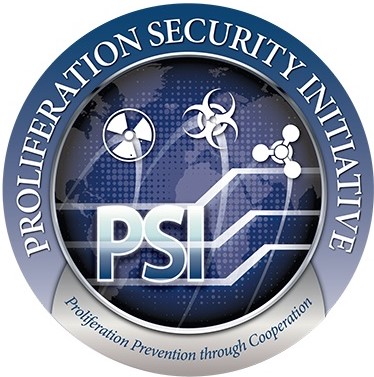Welcome
PROLIFERATION SECURITY INITIATIVE ASIA-PACIFIC EXERCISE ROTATION AUSTRALIAN-HOSTED EXERCISE PACIFIC PROTECTOR 2017 APER JOINT STATEMENT (Australia, Japan, New Zealand, Republic of Korea, Singapore, United States)
UNCLASSIFIED
Approximately 450 experts from 21 countries participated in an annual Asia-Pacific Proliferation Security Initiative (PSI) Exercise in Cairns, Australia from 6 through to 9 September 2017.
Participants demonstrated their firm and active commitment to preventing the proliferation of weapons of mass destruction (WMD) by states or non-state actors of concern. This commitment was given an added sense of urgency in the wake of North Korea’s dangerous provocation in conducting a sixth nuclear test on 3 September in defiance of successive United Nations Security Council Resolutions.
As recent United Nations Security Council Resolutions related to all manner of WMD proliferation threats demonstrate, it is more important than ever for regional partners and the international community to band together against rogue actors to prevent the spread of WMD and their delivery systems.
Since its establishment in 2003, the PSI has provided an effective forum to enhance cooperation on disrupting illicit transfers of WMD-related materials and technologies. Since 2003, the PSI partnership has grown nearly tenfold – from 11 to 105 countries, which have endorsed the PSI Statement of Interdiction Principles.
Asia-Pacific Exercise Rotation (APER) partners— Australia, Japan, New Zealand, the Republic of Korea, Singapore and the United States—recognise the particular threat posed by WMD proliferation in the Asia-Pacific region. The region hosts key global trade routes and large transhipment hubs, as well as a rapidly increasing volume of international trade.
To address this threat, APER partners committed in 2013 to hosting annual exercises that test their capabilities. APER exercises are designed to practice scenarios and improve mechanisms for sharing intelligence, aligning decision-making processes and deploying capabilities and assets within international and domestic legal provisions for interdiction operations.
Pacific Protector 2017 brought together experts in the fields of security, defence, foreign affairs, border control, law enforcement, counter-proliferation and export control. The exercise tested participants’ ability to track and interdict a shipment, undertake timely decision-making, enhance interoperability, and identify and handle nuclear, radiological and chemical materials at port facilities.
Taking part in the exercise was a Japanese Self Defense Forces P-3C Orion aircraft, a Royal Australian Navy frigate, a Queensland Water Police vessel and boarding parties from the Royal Australian Navy, United States Coast Guard and Republic of Korea Coast Guard.
Experts from the Philippines and Thailand participated alongside United States and Australian counterparts in subject matter exchanges and training on chemical, radiological and nuclear materials – significantly enhancing regional capability in this area.
Pacific Protector 2017 is the fourth exercise in the APER schedule – an enduring rotation among action-orientated regional PSI partners that share concerns regarding the impact that WMD proliferation can have on regional and global security.
Pacific Protector 2017 follows three other successful APER exercises: Fortune Guard 2014 hosted by the United States; Maru 2015 hosted by New Zealand; and Deep Sabre 2016 hosted by Singapore. After Australia hosts Pacific Protector 2017, Japan will host Pacific Shield in 2018, and the Republic of Korea will host Eastern Endeavour in 2019.
These exercises have substantially enhanced capability and coordination across the region in relation to counter-proliferation and interdiction techniques. They have also sent a clear signal to proliferators that their activities are being monitored and that PSI participants are prepared to take action—individual and in collaboration—to stop them.
